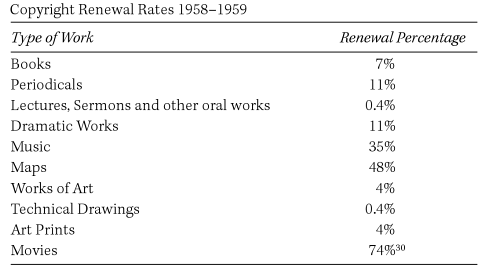For those of us of a certain age, MTV defined culture. It was where we learned about not just music, but wider pop culture. Of course, MTV lost its cultural place atop the mountaintop with the rise of the internet, but that doesn’t mean that it wasn’t a key source of culture in the 1980s. Historically, the way that society preserves and remembers culture is to share it and spread it around. This is actually how culture is created. Yet copyright is the opposite of that. Copyright is about locking up content and denying the ability to create shared culture around it. And the best evidence of this is the fact that someone (it is not entirely clear who…) with the power to do so, demanded that the Internet Archive take down a bunch of old MTV videos that were uploaded.
So, The Internet Archive had someone upload a few hundred hours of MTV recordings. VJs, Commercials, and of course Music Videos, from the 1980s. Today, it was asked to be taken down by someone who could ask for that and it’s down. pic.twitter.com/tZ7Ka2sGMy
— Jason Scott (@textfiles) May 9, 2020
From a purely legal standpoint, it seems quite likely that whoever issued the takedown did have a legal leg to stand on. The real question, however, should be whether or not they have a moral or cultural leg to stand on. After all, if the entire point of copyright — as per the Constitution — is to encourage “the progress” then how does taking these old clips down do anything to support that goal?
There are a number of other points worth mentioning to demonstrate how crazy this whole thing is, starting with the fact that MTV itself knew how important it was to build on cultural touchstones in that its whole logo/image was built off a public domain image from just a few years earlier. The moon landing was in 1969, and MTV launched in 1981. Imagine if this image had been locked up under copyright?
MTV knows that creativity comes from building on the past; it created its most iconic moon landing imagery on top of public domain government videos and photographs. Another big company pulling up the ladder behind it https://t.co/9pamGhNAbb
— Parker Higgins (@xor) May 10, 2020
This also demonstrates a separate point we’ve been making for years, which is that the actual commercial value of a piece of work locked up behind copyright, tends not to be that long, and yet we locked it up for basically a century for no good reason at all. In the earliest copyright times in the US, copyright initially was for 14 years, which could be renewed for another 14 if the copyright holder felt it was worth it. A maximum of 28 years would mean that most of the uploaded clips would now be in the public domain if we had kept those terms. And, as we’ve pointed out repeatedly, back when copyright was 28 years, renewable for another 28 years, very few works were renewed, suggesting that the vast majority of copyright holders did not see any reason to retain their copyright beyond 28 years (indeed, the numbers suggest many would have been fine with significantly shorter copyright terms):
Yet, today copyright automatically lasts beyond most of our lifetimes. And, for what purpose? Right now, MTV is not particularly culturally relevant. You’d think that someone might jump at the chance to get renewed interest in MTV’s past cultural relevance, but the belief that copyright means we must lock up culture seems to prevail over common sense.
Taking down these cultural touchstones may have been perfectly legal, but all it’s really done is help demonstrate the many, many problems of today’s copyright law and how it destroys, rather than enhances, culture.
Source: Copyright Making Sure That MTV Remains An Irrelevant Relic, Rather Than A Cultural Icon | Techdirt

Robin Edgar
Organisational Structures | Technology and Science | Military, IT and Lifestyle consultancy | Social, Broadcast & Cross Media | Flying aircraft

